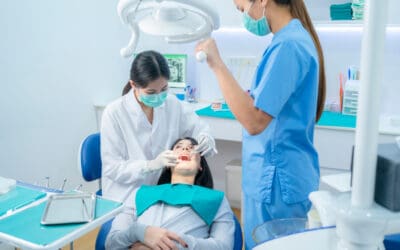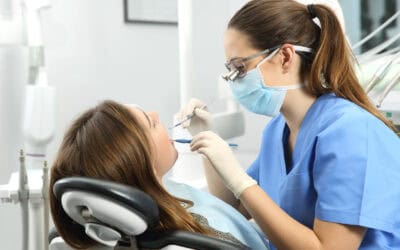If your dentist has recommended that you undergo oral surgery in Edmonton, the staff at your dental clinic will provide you with detailed instructions about what to expect before, during and after your surgery. You should follow all those instructions carefully. This article is not intended to replace any of those instructions, but is a general guide for your information and may serve as a guide for discussing your preparation with your dentist.
“Oral surgery” is a very general and broad term, but what does it include? Some of the most common types of dental surgery are root canal procedures, dental implant surgery, wisdom teeth extraction, reconstruction surgery after an accident or injury, tooth extractions and bone grafting. Here are some tips and instructions about how to prepare for undergoing any form of oral surgery near you.
Follow your dentist’s pre-surgery instructions carefully. We made this point once already, but it’s important enough to emphasize. Your dentist is the person who knows your medical condition and needs best, and those instructions will include specific steps to prepare for the exact procedure you’re undergoing and any anesthesia you may receive.
Your dentist may prescribe some medication to you in anticipation of surgery. Typically, those medications may include some narcotic pain medications and antibiotics. Fill your prescriptions before your surgery so you have them available right away. Follow the instructions relating to medication exactly. (In some cases, your dentist may instruct you to take some medication before your appointment, such as antibiotics or an oral sedative.)
If you are receiving anesthetic during your surgery — laughing gas, oral sedation, IV sedation or general anesthesia — you should not drive home afterwards. Arrange for transportation to and from your appointment in advance.
Included in the instructions that the staff of your dental clinic in Edmonton will give you will be instructions about what to eat (or not to eat) and when after your procedure. Read those instructions carefully, and stock up on foods and drinks that you’ll need while you recover but that you don’t usually have.
If you’re going to receive anesthesia during your procedure, fast (refrain from eating or drinking) as directed. If you take oral medications, let your dentist know so that they know you may need to sip a tiny amount of water while taking your medication. Fasting is important so that your stomach will be empty to minimize the risk of nausea and to prevent food or liquid from getting into your lungs to cause you to choke.
Dress comfortably and avoid wearing long or tight sleeves since your dentist’s staff will need easy access to your arms for several reasons, including taking your vital signs, administering intravenous (IV) sedation and keeping an eye on your blood pressure. Wear comfortable and temperature-appropriate clothing, keeping in mind that you’ll be seated from some time.
Don’t smoke for at least 12 hours before your appointment and refrain from smoking for at least 24 hours after your appointment. Smoking can prevent or prolong your healing process and even cause infections. The physical act of smoking can also dislodge the blood clot your dentist will leave behind after some procedures.
Our final suggestion is one that applies to preparing for oral surgery, but to every other dental procedure and appointment, too. What is it? Ask any question you have and never hesitate to contact a dentist near you if you have any concerns or experiencing anything unexpected or concerning. Your dentist and the staff at every dental clinic near you are on hand to ensure you are comfortable — physically and emotionally — at every stage.



